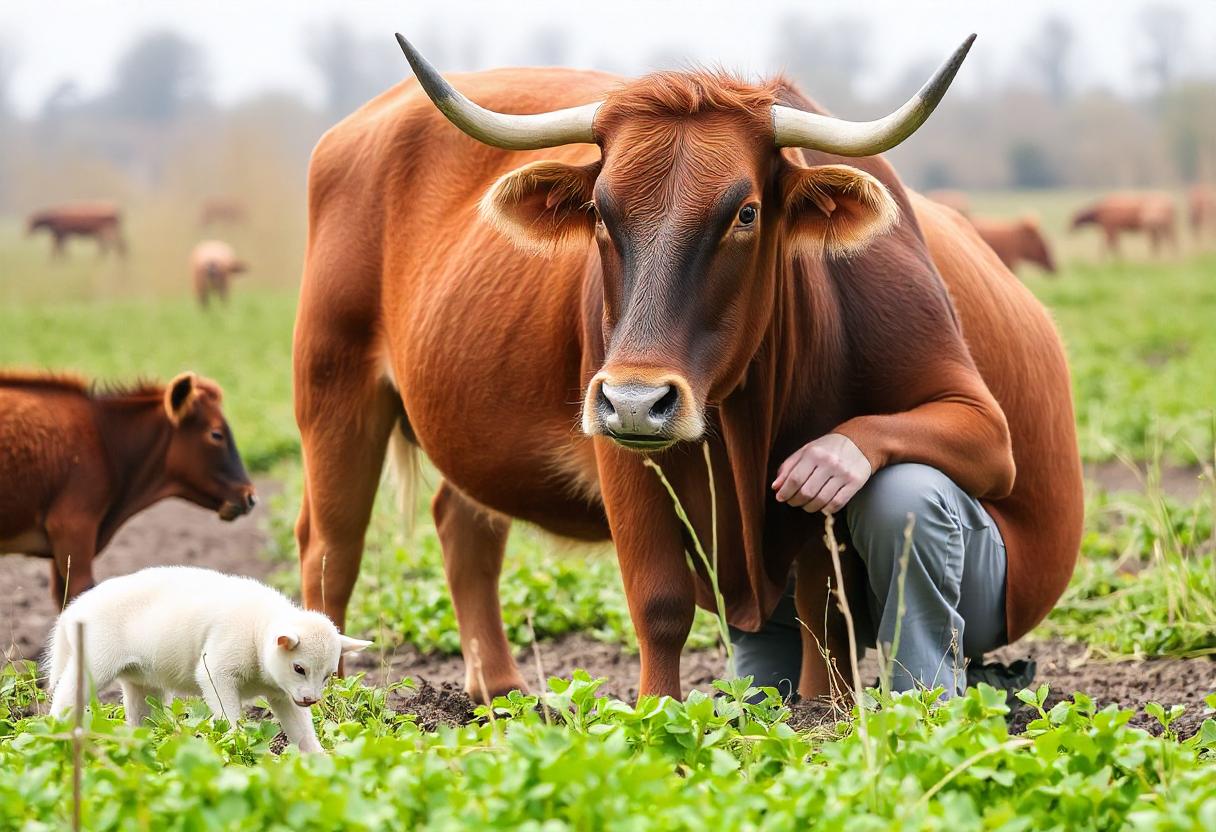
Agriculture zoology, a specialized field at the intersection of agriculture and animal science, focuses on the role of animals in agricultural systems. This branch of zoology examines the interactions between livestock, wildlife, and agricultural practices, aiming to improve productivity, sustainability, and animal welfare within farming environments.
The Role of Livestock in Agriculture
Livestock plays a crucial role in agriculture, providing a range of products including meat, milk, eggs, and wool. Understanding the biology and behavior of different livestock species helps in optimizing their health, productivity, and management. For example, studying the digestive systems of ruminants like cattle and sheep can lead to improved feeding strategies that enhance growth rates and reduce environmental impacts.
Wildlife and Crop Protection
Wildlife can both positively and negatively impact agriculture. Certain animals, such as birds and insects, act as natural pest controllers, reducing the need for chemical pesticides. On the other hand, wildlife can also cause damage to crops and livestock. Agriculture zoology explores these interactions to develop strategies for managing wildlife in ways that benefit both agricultural production and conservation efforts.
Animal Health and Disease Management
Animal health is a critical component of agriculture zoology. This includes studying diseases that affect livestock and their impact on agricultural productivity. Research in this area focuses on identifying pathogens, developing vaccines, and implementing biosecurity measures to prevent outbreaks. Effective disease management practices are essential for maintaining healthy livestock populations and ensuring the safety of animal products.
Breeding and Genetics
The field of agriculture zoology also encompasses breeding and genetics, which are vital for improving livestock traits. Through selective breeding and genetic research, farmers can enhance desirable characteristics such as growth rates, disease resistance, and reproductive efficiency. Understanding genetic principles and applying them in breeding programs can lead to more productive and resilient animal populations.
Sustainable Practices and Animal Welfare
Sustainability and animal welfare are important considerations in agriculture zoology. Research in this area examines how agricultural practices affect animal well-being and the environment. This includes studying the impacts of housing systems, feed formulations, and management practices on animal health and behavior. Developing sustainable practices that prioritize animal welfare can lead to more ethical and environmentally friendly farming systems.
Integration of Technology
Advancements in technology have significantly impacted agriculture zoology. Technologies such as precision agriculture, genomics, and data analytics are being used to enhance livestock management and productivity. For instance, wearable sensors can monitor the health and activity of animals in real-time, providing valuable data for improving management practices and ensuring optimal conditions for livestock.
Education and Research
Education and research in agriculture zoology are essential for advancing knowledge and practices in the field. Universities and research institutions offer specialized programs and courses that train individuals in the science of animal husbandry, veterinary care, and agricultural systems. Ongoing research contributes to the development of new techniques and technologies that address current challenges in agriculture and animal science.
By examining the interactions between animals and agricultural practices, agriculture zoology provides valuable insights that enhance the efficiency, productivity, and sustainability of farming systems.